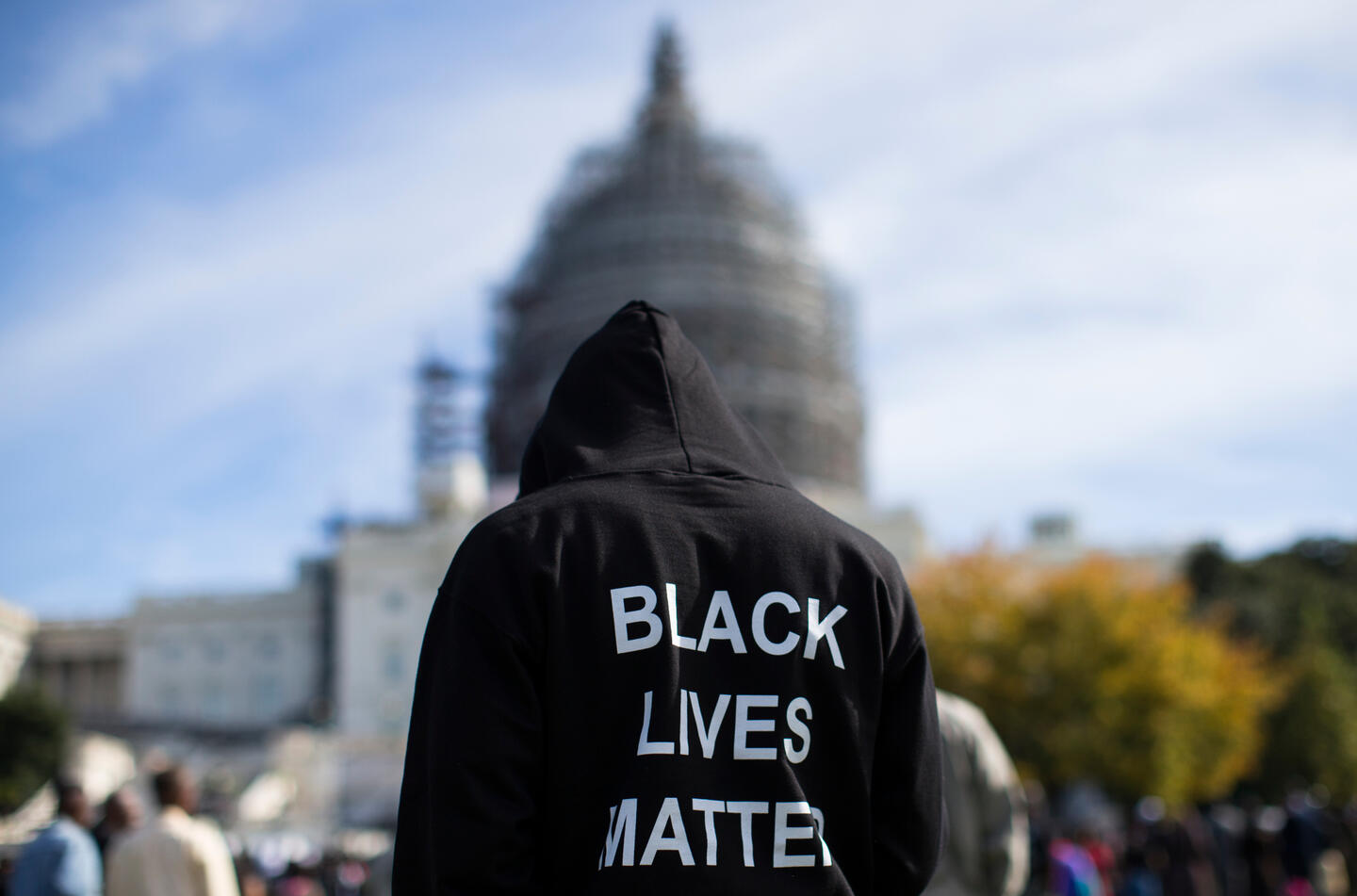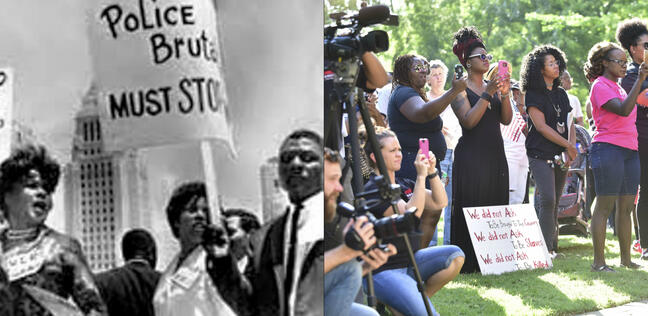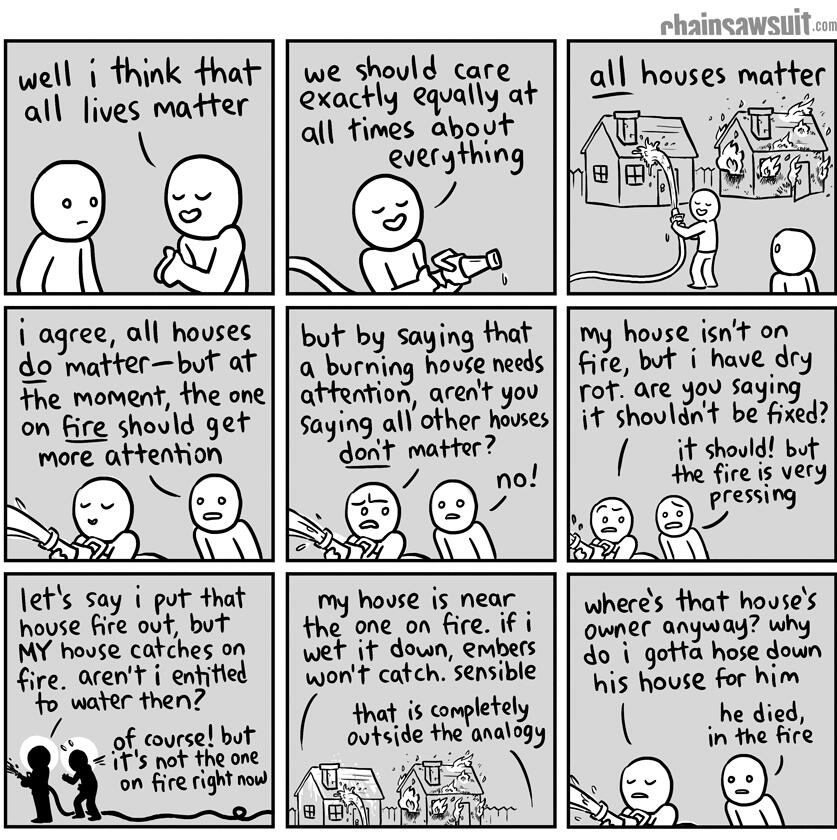
Hands up, don't shoot.
Police brutality against black men, women, and children: An epidemic
Information
History of police brutality
The first slave patrols arose in South Carolina in the early 1700s. As University of Georgia social work professor Michael A. Robinson has written, by the time John Adams became the second U.S. president, every state that had not yet abolished slavery had them. Members of slave patrols could forcefully enter anyone’s home, regardless of their race or ethnicity, based on suspicions that they were sheltering people who had escaped bondage
The first police forces were overwhelmingly white, male and more focused on responding to disorder than crime.
Slave patrols formally dissolved after the Civil War ended. But formerly enslaved people saw almost no relief from racist government policies as they promptly became subject to black codes.
For the next three years, these new laws specified how, when and where African Americans could work and how much they would be paid. They also restricted black voting rights, dictated how and where African Americans could travel and limited where they could live.
Police Brutality, Misconduct and Shootings today
In modern-day America, there are huge racial disparities in how police use force. Black people are much more likely to be shot by police than their white peers.
An analysis of the available FBI data by Dara Lind for Vox found that US police kill black people at disproportionate rates: Black people accounted for 31 percent of police killing victims in 2012, even though they made up just 13 percent of the US population. The data is incomplete because it’s based on voluntary reports from police agencies around the country however, it highlights the vast differences in how police use force. It can be seen in headlines almost weekly that police are shooting unarmed black men, women and children’s and much higher rates than any other race in North America.

The #BLM Movement
What is #BLM?
The #BLM (Black Lives Matter) movement is a international activism movement in order to bring light to and get justice for black men and women who fall victim to police brutality, shootings, prejudice, and systematic racism.
The Herstory
In 2013, three radical Black organizers, Alicia Garza, Patrisse Cullors, and Opal Tometi, created a political will and movement building project called #BlackLivesMatter. This movement was in response to the the acquittal of Trayvon Martin’s murderer, George Zimmerman, who shot the boy in cold blood knowing that he was unarmed.
Why #AllLivesMatter is Toxic
It is common place nowadays to hear the phrase “Black lives matter” replied to with “No, all lives matter” or something of that sort. This phrase “All lives matter” is true, however it is toxic when used in rebuttal to the black lives matter statement.
The phrase “black lives matter” was meant to address a horrible disparity in North-America today: black people in are nearly eight times more likely to die of homicide than white people. Often people who say “all lives matter” say it, collectively under the idea that “all men are created equal”. It is meant to refute the idea that “only” black lives matter.
The idea of all lives matter was only coined AFTER the black lives matter movement had taken off, it was coined only to silence black injustice. In saying this phrase, you are saying that there is no racial disparity in North America. You are refuting statistics that prove there is racial disparity in North America. You are saying, simply and straightforwardly, that black lives do not matter. At least not as much as white ones do. Is this what you want to be saying?
The main difference between all lives matter and Black lives matter is that black lives matter was created in response to black men and women being killed, All lives matter was created in response to black lives matter to silence victims. Of course all lives matter, But black lives are the ones being ended in our society and we need to speak up about it.

Say Their Names
The names of some black men, women and children lost at the hands of police.
Michael Brown, Jr.
Sandra Bland
Tamir Rice
Eric Garner
Trayvon Martin
John Crawford III
Walter Scott
Freddie Gray
Dontre Hamilton
Ezell Ford
Dante Parker
Tanisha Anderson
Akai Gurley
Aiyana Jones
Laquan McDonald
Alton Sterling
Oscar Grant
Sean Bell
Philando Castile
Natasha McKenna
Jordan Edwards
Rekia Boyd
Yvette Smith
Kimani Gray
Travares McGill
Amazon Diallou
Alonzo Washington
Orlando Barlow
Timothy Russell
Aaron Campbell
Sherees Francis
Timothy Stansburg
Ramarley Graham
Patrick Dorismond
Miriam Casey
Ousame Zongo
Kendrec McDade
Ronald Madison
Kendall Allison
Ervin Jefferson
Tarika Wilson
Sharmel Edwards
Jerame Reid
Tyre King
Samuel Dubose
Phillip White
Johnathan Ferrell
Islan Nettles
Ria Wilson
Charleena Lyles
Rumain Brisbon
Frankie Perkins
Michelle Cusseaux
Eleanor Bumpurs
Shantel Davis
Alexia Christian
Pearlie Golden
Mya Hall
Kimberly Randle-King
Lavena Johnson
Albert Spurill
Kyam Livingston
Kendra James